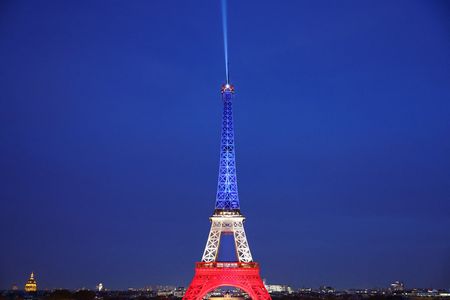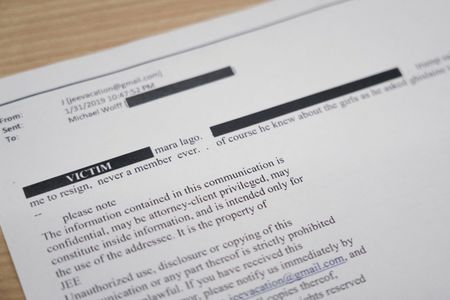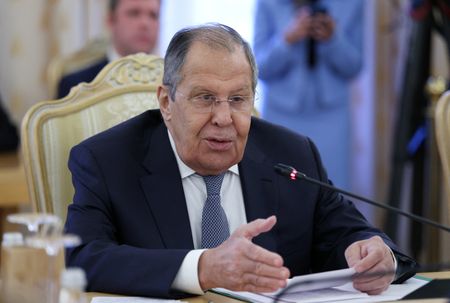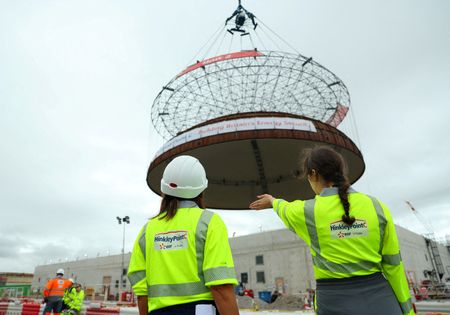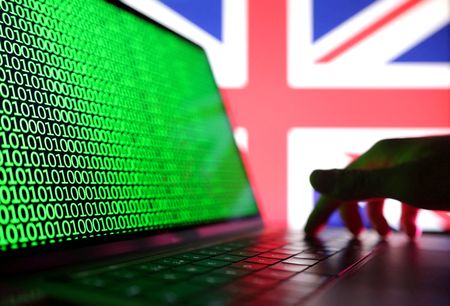By Elissa Darwish and Ingrid Melander
PARIS (Reuters) -France marks the 10th anniversary on Thursday of attacks in Paris in which Islamic State gunmen and suicide bombers killed 130 people in a rampage through cafes, restaurants and the Bataclan concert hall, and many survivors are still traumatized.
The attacks were the deadliest on French soil since World War Two, scarring the national psyche and prompting emergency security measures, many of which are now embedded in law.
The assault began with suicide bomb blasts outside the Stade de France sports stadium where then-President Francois Hollande and the German foreign minister were watching a friendly soccer international, and continued with gunmen opening fire at five other locations in central Paris.
Starting at 11:30 a.m.(1030 GMT), President Emmanuel Macron will join officials, survivors and relatives of victims paying tribute to those killed and wounded in the attacks. The memorial events begin at the Stade de France and move on to the restaurants and cafés that were attacked, as well as the Bataclan.
ATTACK ON THE BATACLAN
Sebastian Lascoux was inside the Bataclan where the rock band Eagles of Death Metal were playing when what he thought was the noise from firecrackers pierced the concert hall. It quickly became apparent that the venue was under attack.
People “ended up all squashed together and collapsed as one,” he recalled. “And then (there was) the smell of blood,” said Lascoux, now aged 46. One of his friends was shot dead trying to shield another member of their party.
“He saved her life,” added Lascoux, who still suffers from post-traumatic stress and cannot be in crowded places or enclosed spaces, even cinemas. Loud pops remind him of gunshots.
Like some other survivors, Lascoux plans to attend Thursday’s commemorations.
“What made the November 13 attacks unique was that everyone was a potential victim,” historian Denis Peschanski said.
“Either they were old enough to be there, or, like me, they were old enough to have children who could have been there, even though I was lucky they weren’t.”
‘LIFE GOES ON’
Catherine Bertrand, a survivor of the Bataclan attack, and vice-president of a victims’ association, said: “We all agree that it has marked us forever. We are all deeply traumatized by that evening, and our thoughts of course turn to the victims and their loved ones.”
She stressed that life must go on, though, saying: “There are concerts at the Bataclan, life goes on, we meet up between friends” at the places where the attacks took place.
Ten years on, the threat of such attacks in France is different. Militant jihadist groups such as Islamic State no longer have the same means to coordinate attacks on French soil, security sources say.
But the group’s online propaganda is still effective and able to radicalize youngsters fascinated with violence on social media. Anti-terrorism prosecutors this week launched a probe into the former partner of the presumed sole surviving perpetrator of the attacks.
(Reporting by Elissa DarwishAdditional reporting by Antony Paone, Juliette Jabkhiro,Michel RoseWriting by Ingrid MelanderEditing by Richard Lough and Frances Kerry)

